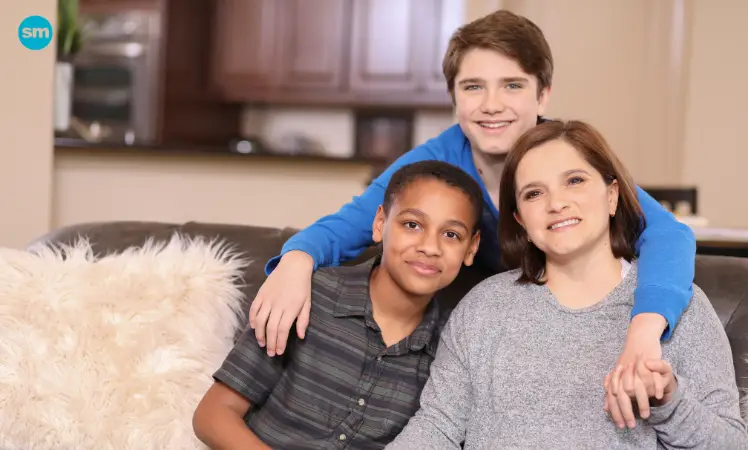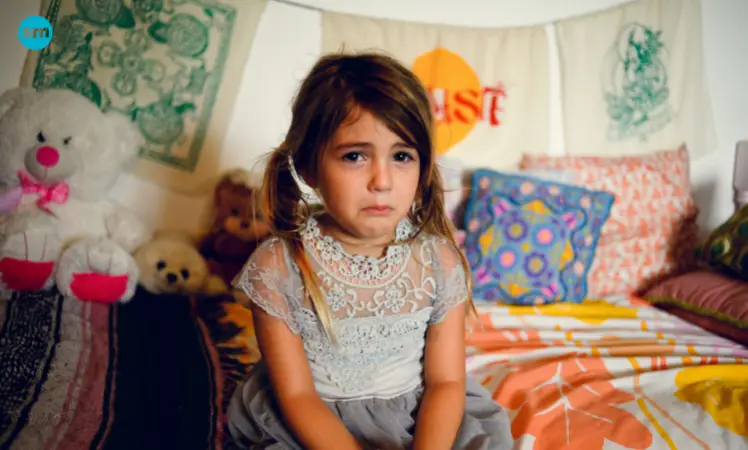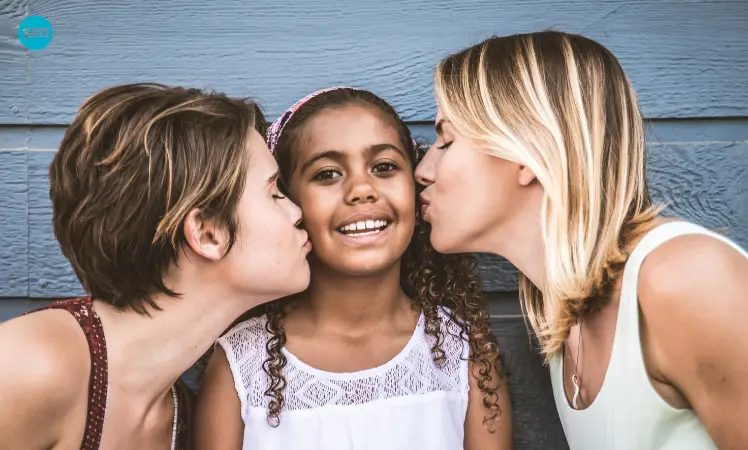Last Updated on January 24, 2024 by Lori Pace
While you can be considered a foster parent, your role is that of a parent. However, the local authority and child’s birth parents ultimately have the responsibility for the child. You may also share some decision-making abilities. On the other hand, adopting a child means you are fully responsible for the child and you can make decisions about how to best care for them. However, the differences between foster care vs adoption are much more than that.
What’s The Difference Between Foster Care Vs Adoption?
It is important to understand the differences between adoption and foster care if you are interested in understanding them.
Adoption
Adopters may not be able to find the right match immediately. You probably have an idea of who the child will be when you decide to adopt. You will learn more about the adoption process during the assessment and evaluation period. This will challenge your preconceived notions.
You may have considered who the children that you would like to adopt when you first started thinking about becoming adoptive parents. You might be surprised to discover that many children have been removed from their families due to neglect or abuse, as well as learning disabilities and behavioral issues.
During the assessment period, you might find yourself having to change your mind about the child that you want to adopt. It is possible that you will need to consider what disabilities or medical conditions you are able to work with.
Compare vs Foster Care, Adoption is a significant commitment. You become the parent when the child becomes your own child. This is a permanent deal. No second-guessing is allowed. There are legal, emotional, and social repercussions. Although there may be a time period after the child is placed with your family and before the adoption order can be made if you have agency support, it is ultimately your new family unit.
Fostering
Fostering is where the child lives temporarily. The first step is to help the family that adopted the child find a way to resolve their problems so they can return to their home. Some children are adopted or adopted by their relatives, but others may be in permanent foster care.
Foster care parents, unlike vs adoption, have access to a social worker who is available 24/7 to assist them with any concerns or problems. An allowance is paid to foster parents that covers the costs of caring for their child. Foster parents can also contact the agency to provide financial support for special needs children.
Foster Care
There are many types of foster care.
- Temporary: This child is in an emergency situation and requires a safe place for a few nights.
- Short-term: While a permanent solution for the child is found, this temporary solution can last for a few weeks or months.
- Long-term care: Children who cannot live with their biological family and are not in a place to adopt can be placed in long-term foster homes. Learn more about the differences between short-term and long-term fostering right now.
- Respite Care: Children who have special needs, disabilities or behavioral problems are often placed with foster families for brief visits so their foster parents or foster carers can take a break.
- Specially trained foster parents: Children placed in custody by the court need foster carers who have received special training.
- Family and friends: Also called kinship foster, this is a situation in which the child is placed with someone they know, usually a family member.
- Specialist therapeutic: This type of foster care is for children and teens with complex needs or challenging behavior.
Long-term fostering
Permanent fostering is also known as long-term fostering. As young people are often placed in temporary care after being adopted, it is rare for them to be in permanent care.
A court order can only be issued if the situation is not remediated. The court order assigns legal responsibility to the local authority for the minor and the guardian of the child. This means that the child may be adopted in some cases but not all.
Long-term foster care is an alternative. The question is why long-term foster is preferred over adoption. It may be in the child’s best interest to maintain contact with and visit his or her birth parents. This is often due to the strong desire of the child to keep in touch with his or her family.
Although the contact may be limited, it provides a link between the child’s birth parents and the adoptive parent. Adoptive parents will have sole parental rights to the child, and all links between the child’s birth parents and the adoptive parents would be cut.
Can Foster Care Parents Adopt?
Fostering is not about adoption. Although it is possible, foster care usually does not lead to adoption. Foster children are rarely available for adoption. There are some issues to be aware of if you foster a child that becomes adoptable.
First, you need to be approved as a foster parent. You will also need to undergo the approval process for adoption. The process of adopting a child from foster care can be complicated because the birth parents will know your identity as a foster parent.
Fostering for Adoption is where children in foster care are evaluated with the goal of adopting them. Potential adopters can foster the child while they make the decision. This protects the child against being moved again.
This is when the local authority/fostering agency looks at the applicants and accepts them as temporary foster carers for the child. Dual approval is what you call it. Dual approval families are considered foster carers. This means that both the local authority as well as the birth family bear parental responsibility. Foster carers receive a fostering allowance. Adoption is not always possible. There is also the possibility that the child may not be adopted.
However, Concurrent Planning Is A Path To Adoption For Foster Care Parents
While reunification is the ultimate goal of foster care, some foster parents are asked to prepare to adopt child in case the birth family is not a safe place for returning.
Concurrent planning is similar in nature to foster care. The potential adopter fosters the child until the adoption decision is made. Concurrent planning is for babies and toddlers younger than two years old. It follows the same process as fostering for adoption.
Concurrent carers can be considered a foster carer during the adoption decision. They must also work with birth parents during the assessment. If adoption is deemed the best option, the child will remain with the concurrent caregiver who can then adopt the child.
How Does Concurrent Benefit A Child?
Concurrent planning should achieve the following:
- Promote the safety of children & youth
- Temporary permanence
- Children and youth should be moved less often
- Encourage the growth of strong relationships between the child’s birth family and the adoptive parents. (National Center for Child Welfare Excellence. n.d.)
How Does A Child Benefit From Foster Parent Adoption?
Foster care adoption is a more familiar option than other types of adoption. Because you may already know the child’s family, medical history and personality, as well as important aspects of their lives, foster care adoption can be used to strengthen existing relationships.
Even infants can grieve the loss of familiar sounds, sights, and smells, as well as the touch of family members, when they move to a new environment. Foster parents can adopt a child or youth so that they don’t have to break those bonds or leave behind their foster family, friends, pets, school, and home. Adopting a child out of foster care is the best outcome. It gives them security and a home. As a foster parent, you are more likely to experience the following:
- It is important to know the background and experience of your child and what you can expect from him or her. This information can help you understand your child’s needs and provide the best possible response.
- You know and have had contact with your child’s birth parents and are able to see them as people with real strengths, and real challenges. You might have maintained contact with the birth family in order to work towards reunification.
- You are clear about your role, and you maintain a relationship with your caseworker and the child welfare agency
Adoptive Parents
Adopting a child or youth from foster custody is a great way to see them succeed in their placement and achieve permanent residence. Foster children and youth can’t always live with the same family. Adopting a child or youth in foster care gives you and the child permanent protection.
Birth Families
Foster care adoption can also benefit birth families (including siblings) by allowing them the opportunity to find out who is caring for their loved ones. Birth families might have regular contact with the youth or child, as well as opportunities to share family history and maintain relationships.
Family Qualities For Successful Foster Care Adoptions
While every family and child is different, certain parenting characteristics can help ease the adoption process for children who have been in foster homes. NTDC identifies certain qualities that are important to adopt children from foster care. These include the willingness to dedicate the time necessary to be present and attuned to children and youth, to integrate family traditions to honor and/or involve siblings, and to adapt expectations based on the specific developmental needs of each child and youth.
According to NTDC, successful foster and adoptive parents may need to develop the following characteristics:
- Flexibility — Learning and using new parenting skills and strategies to help youth who have lost or separated from their parents
- Patience — Developing healthy attachments over a long period of time.
- Nurturing — Seeing discipline as an opportunity for children and youth to learn and grow rather than as punishment
- Compassion — Using strategies to show compassion and have compassion for birth parents, and any challenges they might face
- Adaptability –Understanding how important it is to adapt parental expectations
- Sense of Humor — Using humor to express emotions, manage stress and de-escalate tension situations. Being able to laugh at yourself and not take things too seriously
To understand and validate your child’s overlapping identities, you may have to adjust your parenting approach. You will find it helpful to identify the parenting methods that you are currently using to support children and teens who have suffered separation, loss, or other types of trauma.
Other Considerations Of Foster Care Vs Adoption
Considerations that you make about the child you are adopting, your role as parent and your family’s characteristics can help you, the child you care for, and the transition from foster to adoption. This section discusses external factors, such as the advantages and challenges of social media and financial aspects of adoption and the legal responsibility entrusted by adoptive parents.
Emotional Considerations Of Foster Care Vs Adoption
Adopting a child can be a lifetime commitment. There are many challenges that may arise as the child grows. Parents of youth and children who have lost their parents or had to split up requires you to identify your parenting strengths and to understand that your methods may need to change to accommodate the developmental, emotional, and physical needs. These strengths and techniques are addressed in the NTDC training plans. It may be necessary to adjust your expectations and see yourself as a healer for your child’s or youth’s past injuries.
NTDC suggests that parents recognize when a child acts out, the triggers that can cause them to react, the reasons behind rejection or testing, as well as how difficult behaviors could be coping strategies for children with underlying issues such as foster care or adoption. Sometimes, children can recover quickly from negative experiences without lasting harm. For many children, however, separation from their parents can interfere with attachment formation and other normal developmental processes.
NTDC-identified skills include the ability to recognize and deal with grief and separation and how your child deals with it. These services will help you and your loved ones provide a loving and safe environment for your child to thrive and grow. Therapy is one example of a helpful support that can address the needs of your child.
Understanding The Effects Of Separation, Grief, And Loss
Foster children are all victims of abuse, neglect, or dependence. Moving into a permanent home or losing their parents’ rights as birth parents makes many children feel intense grief and loss. These emotions are normal and can occur at various stages of the adoption journey. If they do not deal with grief, it can manifest itself as anger, self-medication and denial. Adopted children and teens in foster care and those who have been adopted might need support with identifying their emotions and understanding they are grieving.
Children may feel rejected when they first experience separation from their parents. Adoptive parents often feel rejected by foster youth. This could be an indication that your child is suffering trauma. It is an emotional reaction to past events that have threatened or caused emotional or physical harm. Separation from their families can be very traumatizing for some children, especially if they don’t understand why.
Social Media And Internet Considerations
The internet and social media have revolutionized the way we communicate. You may be interested in positive ways that Facebook and other social media sites can be used to foster healthy and continuous communication between your child’s birth family and your child. While statistics do not exist to show how many birth parents and adopted people use these sites to contact one another, there is evidence that this is an increasing trend.
It is important to find out how your child uses social media and how they use it. Also, to help them stay safe online.
Financial Considerations Of Foster Care Vs Adoption
Foster parents receive reimbursement or a stipend for the care they provide. Adoption changes the terms of that assistance. The stipend and reimbursement are no longer available to you. You will have to pay all of your financial obligations, including child care and extracurricular activities, that you didn’t pay before. Foster Parents may also be eligible for financial assistance if you are an adoptive parent to a foster child. You don’t have to shoulder the entire financial burden.
Adoption is a broad term that covers children with special needs, including those who have rehabilitative, mental, or medical needs. It also includes children who might face difficulty finding an adoptive home. While each state defines “special need” in a different way, the following are common characteristics:
- Being an older child
- A particular race or ethnic background
- Siblings need to be placed together
- Being diagnosed with a mental, physical, or emotional disability
- Other medical conditions
Adoption assistance for children with special needs may include monthly payments, Medicaid coverage and reimbursement for one time adoption costs
Legal and Decision-Making Considerations
Adoption is an emotional and legal commitment that lasts a lifetime. You are not legally a parent and the agency and birth parents share the decision-making. Adopting a child gives you the same legal rights as birth parents for their biological children. Adopting a foster child or youth gives them the same rights and responsibilities as biological children.
Adoption makes the child a legal, full member of your family. The State no longer has custody. Adoptive parents are fully responsible for decisions regarding issues like school enrollment, travel to another country or state, visitation with birth family, and other matters.
Foster Care Vs Adoption: What Should You Choose?
It is difficult to decide whether to foster or adopt. This decision can impact many aspects of your life. There are also financial considerations. The local agency or authority with which foster parents work provides full support. Capstone, an independent agency that fosters children, has a national team of experts available to help with learning disabilities, behavioral problems, special needs, and other issues.
Your efforts to be patient and supportive of your foster child are not unique. You have a strong network to share your experiences with other carers.
The biggest difference between foster children and those who need them is the number of young people you are able to help. This means that you can help many children as a foster parent while looking for an adoptive child. You might take a longer time to find one that is a good match to your family to become a permanent member.
Foster Parent
You are made aware of the possibility of reunification or adoption for the child you adopt. It is up to you to decide whether you are prepared to accept the fact that the child may be adopted by someone you know, a relative, or return to their birth family.
Your caseworker will teach you how to deal with anxiety, stress, loss, and assess the support available from your family and friends. Foster parents have a responsibility to support the child’s birth family, not act as an intermediary for their or their parents. Adoptive parents must maintain contact with their birth families for the well-being of the child.
You’ll be surprised at the differences between foster parents and adoptive parents if your preparations, training, and relationship building with birth parents result in adoption. It is important to fully understand your parental role as a foster parent and adoptive parent.
Adoptive Parent
To become an adoptive parent, an individual must meet all legal requirements. The needs of the child, and the fitness are the most important factors in allowing an adoption.
Other factors that are considered when deciding whether someone is suitable for adoption include their economic situation, criminal history, and living environment. The respective adoption agencies will investigate adoptive parents.
Adoption usually ends the parental responsibilities and transfers them to the adoptive parents. Adopted children and natural children will have the same rights. It is important to remember that an adult adoptee will have different responsibilities than a minor.







